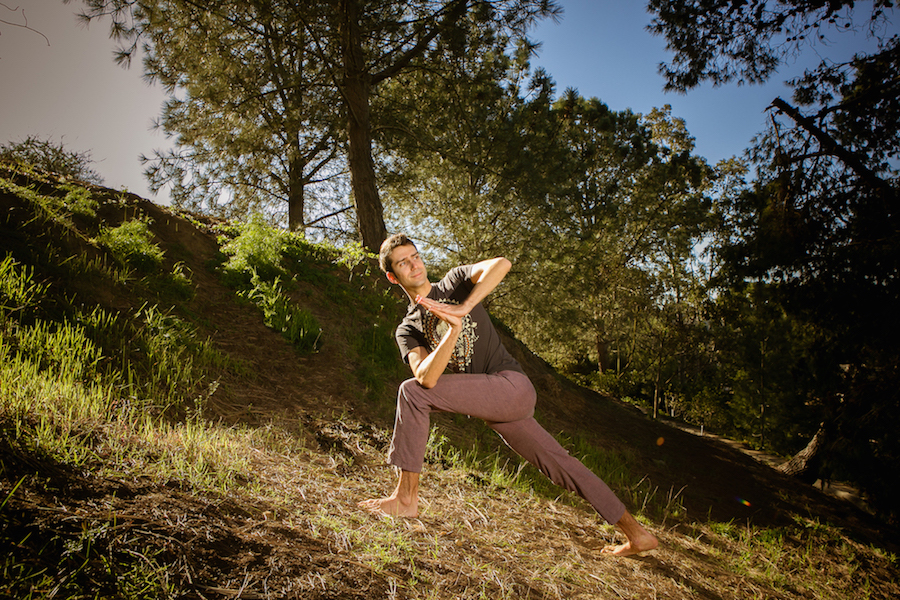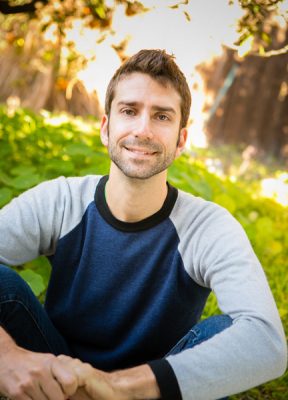
“How you do anything is how you do everything”
Faculty Friday will return next week to conclude January’s Dare to Move segment of our 90-day Dare to Do New Year’s challenge. Join us in continuing to celebrate the benefits of being active on February 10 at a day-long Yoga Retreat led by Danny Arguetty, manager of the UW Mindfulness Program. Below, Arguetty shares his own story of how yoga practice brought him peace and inner strength—both on and off the mat.
One of my favorite sayings is, “How you do anything is how you do everything.” Repeating it always creates a little moment of pause and it reminds me of how my own journey—which began on a little rectangle sticky mat—has evolved over time into a robust daily living practice.
When I was younger, I was very disconnected from my body which lead to pretty low self-image and a barrage of negative thoughts. Yet when I began moving on the mat, I felt for the first time somewhat accomplished. Over time, I began to feel stronger in my arms, legs and core. My spine freed up and my low back pain completely disappeared.
I felt more empowered off the mat as well. When I looked in the mirror, a kind voice even chimed in. The usual barrage of less friendly voices were taking a well-deserved vacation. While my body awareness began on the mat, I realized that there were many more hours during the day I could shift my outer pose and consequently impact my inner experience.
As I continued to practice, I began to understand elements of my character on the mat that illuminated my life in the world. As a kid, I received most everything I ever wanted, but as a young adult I began to see that life didn’t always work out my way. My capacity to deal with discomfort and my ability to adapt to the unexpected was non-existent.
On the mat, I started to notice a similar habit pattern. When an instructor guided a longer posture, my mind would become extremely turbulent and holding the pose became much more challenging. I immediately labeled my experience as pain, even though my body was very capable of coping with what was, in reality, heat and sensation.
As I encountered this more often I learned to utilize my breath, to physiologically keep my nervous system in a parasympathetic state and fully feel my experience. I became curious about what lived on the other side of sustaining a pose—of challenging my edge—and of being able to respond more and react less.
Interestingly, this practice started to show up in my daily life. Instead of constantly reacting to outer stimuli such as an unkind word from a colleague, a cloudy day, or not landing a job I applied for, I was better able to let go, adapt, and not take everything so seriously or personally. What began as resiliency on the mat was now being cultivated through my interactions out in the world.
After more years of practice, I faced one of my biggest challenges: fostering compassion, kindness, and empathy for self and others. (Thankfully I found out that it wasn’t just me, and that this is part of the macro human experience—thank goodness). In the practice, I became aware of my desire to perfect my postures, my need to compete with others to be the best, and my harsh judgments of myself as a practitioner and what I perceived to be other teachers’ shortcomings.
When I stepped back off the mat, I was surprised (but it really isn’t shocking at all), that this was also happening elsewhere in my life: poor work-life balance in the quest to be the most creative at work, nasty judgments of what folks were wearing on the subway, and an inability to see other points-of-view—my way or the highway.
To work with all of this I started with compassion: honoring my current state while slowly interrupting these mindless habits that simply did not provide me more life vitality or joy. Bringing more mindfulness to my thought patterns both on and off the mat helped me slowly make little shifts that overtime gained in momentum and strength.
In reality, “How you do anything is how you do everything” doesn’t require a yoga mat. Who are you on your commute? In an interaction with the grocery checkout clerk? With your own internal thoughts and labels? With your beloved or best-friend or family? You don’t have to be perfect or polished all the time, but life does provide us with so many valuable mirrors. So step back and look: commit to that which we are wanting to shift or cultivate for the sake of more sweetness, compassion, vitality, and a rich and meaningful life.

Danny Arguetty, M.A., is the mindfulness program manager at the University of Washington, a yoga teacher (and teacher trainer), nutrition/life coach, and a lover of the environment. He is the author of Nourishing the Teacher and The 6 Qualities of Consciousness. Passionate about helping people flourish through mindfulness, wellness, and personal self-development, he has over a decade’s worth of experience in group facilitation, one-on-one coaching, and experiential teaching.
Danny has guided workshops throughout the United States, led basic and advanced yoga trainings in the U.S. and India, and spoken at Facebook, Olson Kundig, and Gravity Payments (all in Seattle). He served as adjunct faculty at Williams College, leads a quarterly course on Intro to Mindfulness at UW, and is a faculty member at Kripalu Center for Yoga & Health.